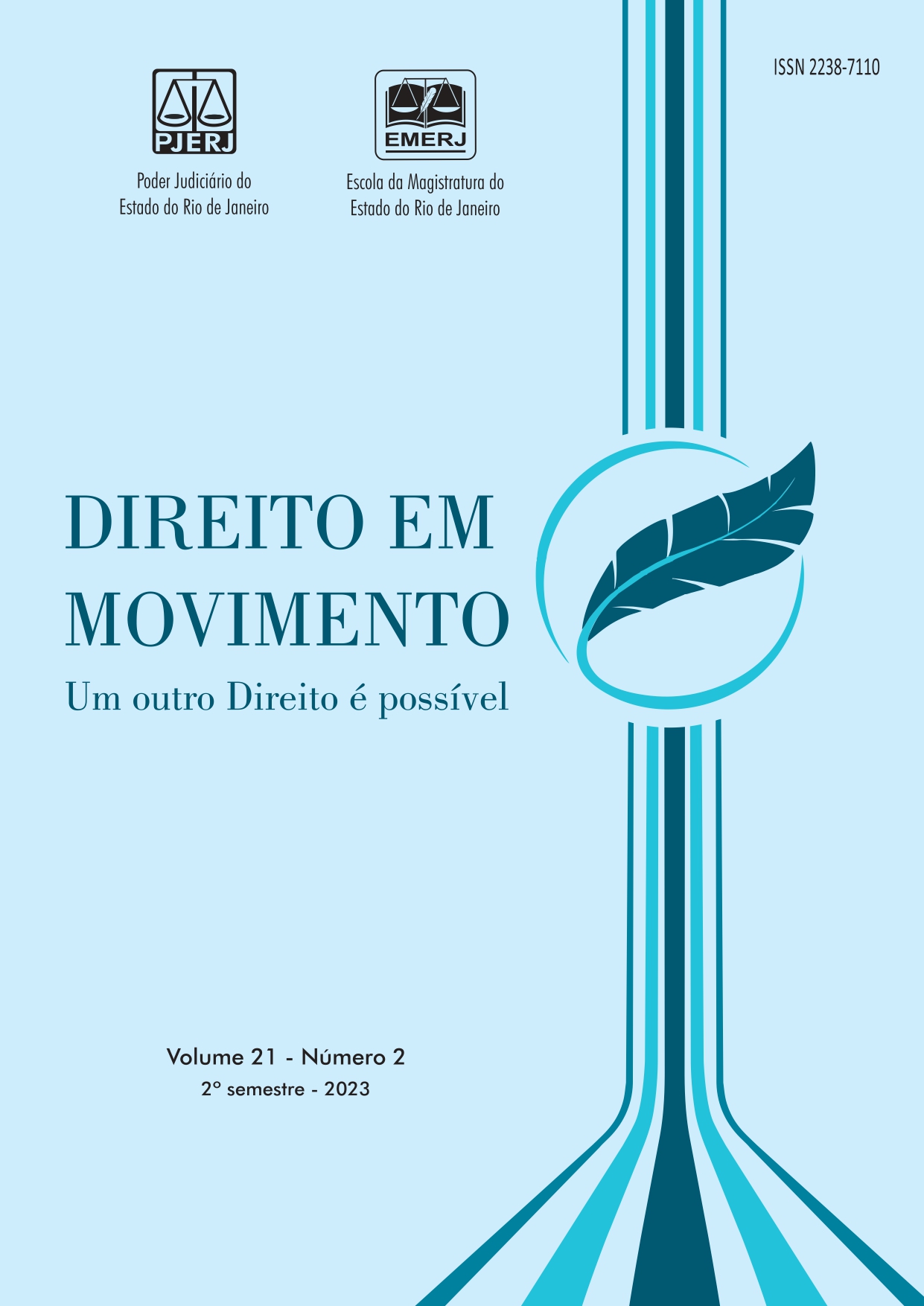Recognition of first nations peoples rights, reconciliation and public policy
Analysis of the australian case
Keywords:
human rights, australia, aboriginal peoplesAbstract
The historical development of Australia was profoundly marked by the marginalization of the native peoples, which are the continental aborigines and the peoples that inhabit the island of the Torres Strait, in the northern part of the country. The English colonial process resulted in prolonged violence against these peoples and resulted in a drastic population decline and racial segregation. The remnants of colonialism remained in political and social structures, culminating in the kidnapping of children and teenagers for acculturation, which gave rise to the so called “stolen generations”. Despite the exclusion and invisibilization process, the Australian government, mobilized by indigenous organizations, has been recognizing the rights of these groups in the legislation and promoted the so called “acknowledgement”, that is, the recognition of their rights and historical reparation for the violations suffered, through the adoption of measures, laws and the implementation of public policies. However, despite the advances and the implementation of inclusion programs, the need for assuring rights remains at the constitutional level, constituting an emblematic case about the difficulty of first nations protection in the state framework
References
AUSTRÁLIA: governo vai indenizar "geração roubada" de aborígenes. Radio France Internacionale, [s.l.], 5 ago. 2021. Disponível em: https://www.rfi.fr/br/mundo/20210805-austr%C3%A1lia-governo-vai-indenizar-gera%C3%A7%C3%A3o-roubada-de-abor%C3%ADgenes. Acesso em: 08 jul. 2023.
AUSTRALIAN BUREAU OF STATISTICS (ABS). Population projections, Australia: populations projections (based on assumptions of fertility, mortality and migration) for Australia, states and territories and capital cities. Canberra: ABS, 22 nov. 2018. Disponível em: https://www.abs.gov.au/statistics/people/population/population-projections-australia/latest-release. Acesso em: 13 ago. 2023.
AUSTRALIAN ELECTORAL COMISSION. Referendum 2023. Canberra: AEC, 2023. Disponível em: https://aec.gov.au/referendums/learn/the-question.html. Acesso em: 20 ago. 2023.
BAINES, Stephen Grant. A relação entre o antropólogo e as políticas indigenistas do Estado, no Brasil, no Canadá e na Austrália. Brasília: Edufal, 2000.
BAINES, Stephen Grant. Primeiras impressões sobre a etnologia indígena na Austrália. Brasília/DF: Universidade de Brasília, Instituto de Ciências Humanas, Departamento de Antropologia, 1993.
CAMPELLO, André Emmanuel B. Barreto. A escravidão no império do Brasil: perspectivas jurídicas. Sinprofaz. Brasília/DF, 22 jan. 2013. Disponível em: https://www.sinprofaz.org.br/artigos/a-escravidao-no-imperio-do-brasil-perspectivas-juridicas/.
CONNELL, Raewyn; PEARSE, Rebecca. Gênero: uma perspectiva global. São Paulo: nVersus, 2015
DUSSEL, Henrique. Ética da Libertação: na idade da globalização e da exclusão. 4. ed. Petrópolis: Vozes, 2012.
FANON, Frantz. Os condenados da terra. Rio de Janeiro: Zahar, 2022.
FINAL report of the referendum council. Referendum Council, [s.l.], 30 jun. 2017. Disponível em: https://www.referendumcouncil.org.au/final-report.html.
GÓES, Guilherme Sandoval. Geopolítica e Constituição à luz do Estado Democrático de Direito. Revista Brasileira de Estratégia e Relações Internacionais, Rio Grande Do Sul, v.9, n.18, jul./dez. 2020, p.107-131.
GONZAGA, Alvaro de Azevedo. Decolonialismo indígena. São Paulo: Matrioska, 2022.
HUMAN RIGHTS AND EQUAL OPPORTUNITY COMISSION. Bringing them home: Report of the National Inquiry into the Separation of Aboriginal and Torres Strait Islander Children from Their Families. Sydney: Human Rights and Equal Opportunity Comission,1997. Disponível em: https://humanrights.gov.au/sites/default/files/content/pdf/social_justice/bringing_them_home_report.pdf. Acesso em: 18 set.2023.
INSTITUTO BRASILEIRO DE GEOGRAFIA E ESTATÍSTICA. Censo de 2022. Disponível em: https://censo2022.ibge.gov.br/. Acesso em: 20 set.2023.
ITÁLIA. Estatuto de Roma do Tribunal Penal Internacional. Institui o Tribunal Penal Internacional. Roma, 17 jul.1998. Disponível em: https://www.ministeriopublico.pt/instrumento/estatuto-de-roma-do-tribunal-penal-internacional-22.
KILOMBA, Grada. Episódios de racismo do cotidiano. Rio de Janeiro: Cobogó, 2019.
KRENAK, Ailton. A vida não é útil. São Paulo: Companhia das Letras, 2020.
KRENAK, Ailton. Ideias para adiar o fim do mundo. São Paulo: Companhia das Letras, 2019.
MARSHALL, Candice. The Uluru Statement from the Heart: Voice, Treaty, Truth. Australian Geographic. [S.l.], 26 may 2022. Disponível em: https://www.australiangeographic.com.au/topics/history-culture/2022/05/what-is-the-uluru-statement-from-the-heart/#:~:text=The%20full%20statement%3A%20We%2C%20gathered%20at%20the%202017,possessed%20it%20under%20our%20own%20laws%20and%20customs. Acesso em: 10 set.2023.
MELO, Thiago Pessoa de; BENZAQUEN, Julia Figueiredo. O uso de referenciais teóricos pós-coloniais e decoloniais em trabalhos de conclusão de curso da UFPE e da UFRPE. Revista Mutirõ, Recife, v. 3, n. 2, p. 171-194, 2022. Disponível em: https://www.bing.com/search?q=%2bMELO%2c+Benzaquem%2c+2022&filters=rcrse%3a%221%22&FORM=RCRE#:~:text=coloniais%20e%20decoloniais%20%E2%80%A6-,https%3A//periodicos.ufpe.br/revistas/mutiro/article/download/253%E2%80%A6%C2%A0,-%C2%B7%20Arquivo%20PDF. Acesso em: 20 set.2023.
NASCIMENTO, Valdir. Nas entranhas do contato: notas sobre antropologia e colonialismo. Ñanduty, [s.l.], v. 4, n. 4, p. 147-166, 2016.
ORGANIZAÇÃO DAS NAÇÕES UNIDAS. Declaração das Nações Unidas sobre os Direitos dos Povos Indígenas. Nova Iorque, 2007. Disponível em: https://www.un.org/development/desa/indigenouspeoples/declaration-on-the-rights-of-indigenous-peoples.html. Acesso em: 20 jul. 2023.
PAYANE, Anne. Motherhood and human rights violations: untold suffering? Australian Journal of Human Rights, [s.l.], v. 24, p. 145-161, 03 may 2018. Disponível em: https://www.tandfonline.com/doi/full/10.1080/1323238X.2018.1463963. Acesso em: 17 ago. 2023.
PERINI, Carlos. Reivindicações constitucionais dos povos aborígenes. Centro de Estudos sobre a Proteção Internacional das Minorias. São Paulo, 27 maio 2022. Disponível em: https://sites.usp.br/gepim/reivindicacoes-constitucionais-dos-povos-aborigenes/. Acesso em: 17 ago.2023.
ROCHA, Cibele; MARTINS, Cristiane; BOTELHO, Michele; RAMOS, Samira. Austrália um país de descobertas. Revista Pandora Brasil, n. 41, abr. 2012. Disponível em: http://revistapandorabrasil.com/revista_pandora/educacao_comparada/australia.pdf. Acesso em: 14 jul 2023.
RUSSEL, Peter. Recognizing Aboriginal title: the Mabo case and Aboriginal resistance to English-settler colonialism.Toronto: University of Toronto Press, 2005.
SAID, Edward W. Cultura e imperialismo. São Paulo: Companhia das Letras, 2011.
THE NATIONAL NATIVE AMERICAN BOARDING SCHOOL HEALING COALITION. Minneapolis, 2022. Disponível em: https://boardingschoolhealing.org/. Acesso em: 11 set. 2023.
VIDAL, Julia Helena Saldanha. A representação do padrão cultural ocidental nos direitos humanos: o caso dos aborígenes na Austrália. Goiânia, 2021. 56 f. Trabalho de conclusão de curso (Graduação em Relações Internacionais) ˗ Escola de Direito, Negócios e Comunicação, Pontifícia Universidade Católica de Goiás. Disponível em: https://repositorio.pucgoias.edu.br/jspui/handle/123456789/3049. Acesso em: 13 jul. 2023
VIJEYARASA, Ramona. Verdade e reconciliação para as “gerações roubadas”: revisitando a história da Austrália. Revista Internacional de Direitos Humanos, v.4, n.7, p. 129-151, jan.2007. Disponível em: https://sur.conectas.org/wp-content/uploads/2017/11/sur7-port-completa.pdf. Acesso em: 14 nov. 2021.
WEST, Barbara A.; MURPHY, Frances T. A Brief History of Australia. New York: Facts on File, 2010.
WHAT is reconciliation? Reconciliation Australia, Kingston, 2023. Disponível em: https://www.reconciliation.org.au/reconciliation/what-is-reconciliation/. Acesso em: 20 ago. 2023.
Published
How to Cite
Issue
Section
License
Copyright (c) 2023 Ana Paula Teixeira Delgado, Cristina Tereza Gaulia

This work is licensed under a Creative Commons Attribution 4.0 International License.
Authors who publish in this Journal agree to the following terms:
- Authors retain copyright and grant the Journal of Constitutional Research the right of first publication with the article simultaneously licensed under the Creative Commons - Attribution 4.0 International which allows sharing the work with recognition of the authors and its initial publication in this Journal.
- Authors are able to take on additional contracts separately, for non-exclusive distribution of the version of the paper published in this Journal (eg.: publishing in institutional repository or as a book), with a recognition of its initial publication in this Journal.
- Authors are allowed and encouraged to publish their work online (eg.: in institutional repositories or on their personal website) at any point before or during the submission process, as it can lead to productive exchanges, as well as increase the impact and the citation of the published work (see the Effect of Open Access).

















